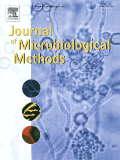
JOURNAL OF MICROBIOLOGICAL METHODS
Scope & Guideline
Advancing methodologies for a healthier tomorrow.
Introduction
Aims and Scopes
- Molecular Diagnostics:
Focuses on the development and application of molecular techniques, such as PCR, qPCR, and next-generation sequencing, for the detection and characterization of microbial pathogens. - Microbial Ecology and Environmental Microbiology:
Explores the interactions within microbial communities and their roles in various ecosystems, including studies on microbial diversity, bioremediation, and the impact of environmental factors on microbial populations. - Antimicrobial Resistance and Pathogen Control:
Investigates mechanisms of antimicrobial resistance, and evaluates novel strategies for controlling pathogenic bacteria, including the use of bacteriophages, antimicrobial compounds, and innovative diagnostic assays. - Biotechnological Applications:
Researches the utilization of microorganisms in biotechnology, including the production of enzymes, bioactive compounds, and the development of microbial-based products for agricultural and industrial applications. - Methodological Innovations:
Highlights advancements in microbiological techniques, including high-throughput screening methods, imaging techniques, and novel assay developments that enhance the accuracy and efficiency of microbial detection.
Trending and Emerging
- CRISPR and Genome Editing Technologies:
There is a growing emphasis on the application of CRISPR technology for genome editing in microorganisms, which is paving the way for innovative research in genetic manipulation and synthetic biology. - Rapid Detection and Diagnostic Techniques:
A significant increase in studies focusing on rapid diagnostic methods, particularly those utilizing molecular techniques such as LAMP, RPA, and biosensors, demonstrates the urgent need for quick pathogen identification in clinical settings. - Microbiome Studies:
Research exploring the human and environmental microbiomes is gaining traction, with a focus on understanding their roles in health, disease, and ecological balance, reflecting a broader interest in microbial community dynamics. - Antimicrobial Stewardship and Resistance Profiling:
There is an emerging focus on the characterization of antimicrobial resistance mechanisms and the development of stewardship strategies to combat the rise of resistant pathogens. - Bioinformatics and Computational Microbiology:
The integration of bioinformatics tools and computational approaches in microbiological research is trending, facilitating data analysis and interpretation in microbial ecology and genomics.
Declining or Waning
- Traditional Culture-Based Techniques:
There has been a noticeable decrease in the publication of studies focused solely on traditional culture methods for microbial detection, as newer molecular techniques gain preference for their speed and accuracy. - Animal Model Studies:
Research focused on animal models for studying microbial infections or treatments is becoming less common, possibly due to increasing ethical considerations and a shift towards in vitro and computational models. - Single-Pathogen Studies:
There is a waning interest in studies that concentrate on single pathogens in isolation, as researchers increasingly recognize the importance of understanding microbial interactions within complex communities.
Similar Journals

Microbiology Research
Fostering Collaboration in Microbial InnovationMicrobiology Research, published by MDPI, stands as a pivotal open-access journal in the field of microbiology, having established its presence since 2010. Based in Switzerland, this journal strives to provide a platform for innovative research and cutting-edge findings in various branches of microbiology, including medical microbiology and molecular biology. With an impact factor that reflects its dedication to scholarly excellence, Microbiology Research is classified in the Q3 category for both microbiology and medical microbiology, and Q4 for molecular biology as of 2023, indicating its growing importance and outreach within these domains. The journal aims to foster discussion and collaboration among researchers, professionals, and students by presenting articles that cover a wide array of topics and methodologies in microbiological research. Leveraging its open-access model, Microbiology Research ensures that high-quality research is accessible to a global audience, thus facilitating the advancement of knowledge and innovation in the microbial sciences.
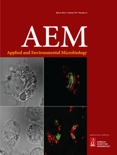
APPLIED AND ENVIRONMENTAL MICROBIOLOGY
Pioneering Research for Environmental and Industrial SolutionsApplied and Environmental Microbiology, published by the American Society for Microbiology, stands as a leading journal in the fields of applied microbiology and environmental science since its inception in 1976. With a prestigious Q1 quartile ranking across multiple categories including Applied Microbiology and Biotechnology, Ecology, and Food Science, this journal consistently disseminates high-impact research that drives innovation and advances our understanding of microbial interactions within our ecosystems and industries. As ranked by Scopus, it exhibits prominent rankings in various related fields, underscoring its critical role in shaping contemporary microbiological research. Researchers, professionals, and students alike can stay abreast of groundbreaking studies while contributing to a vast body of knowledge that spans diverse aspects of microbiology, biotechnology, and ecology, ultimately contributing to sustainable practices. Join the community of dedicated scholars and explore vital research findings that impact both environmental health and technological advancement.

INDIAN JOURNAL OF MICROBIOLOGY
Innovating Solutions Through Microbial ResearchINDIAN JOURNAL OF MICROBIOLOGY, published by Springer, serves as a vital platform for the dissemination of cutting-edge research in the field of microbiology. With an ISSN of 0046-8991 and an E-ISSN of 0973-7715, this esteemed journal invites contributions that span various disciplines within microbiology, encompassing both fundamental studies and applied research that can impact health, environment, and industry. Recognized in the Q3 category in Microbiology for 2023, and ranking #80 out of 182 in Scopus’ Microbiology category, it reflects its commitment to quality and significance in the academic community. Authors and researchers benefit from the journal's comprehensive review process, which enhances the visibility and reach of their work. While no open access options are currently offered, the INDIAN JOURNAL OF MICROBIOLOGY remains a premier choice for those aiming to contribute to the ongoing dialogue in microbiological studies, ensuring that knowledge continues to evolve and thrive.
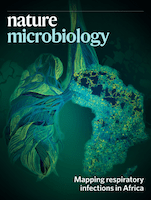
Nature Microbiology
Exploring Innovations in Applied MicrobiologyNature Microbiology is a premier journal published by NATURE PORTFOLIO that has firmly established itself within the realms of microbiological research since its inception in 2016. Based in the United Kingdom, this prestigious journal specializes in the intricacies of applied microbiology, cell biology, genetics, immunology, and medical microbiology, making it a cornerstone for academics and professionals alike. With an impressive Scopus ranking placing it in the top tier across various relevant categories—such as rank #3 in Genetics and #2 in Applied Microbiology—it underscores the journal’s commitment to high-quality, impactful research. Although it operates under a subscription model, Nature Microbiology's broad Open Access policy facilitates greater dissemination and visibility for its authors. The journal's objectives are centered around publishing cutting-edge advancements that enhance our understanding of microbial life, its interactions, and applications in health and disease. As a Q1 journal across multiple disciplines, it holds immense significance for researchers, professionals, and students enthusiastic about the latest innovations and breakthroughs in microbiology.
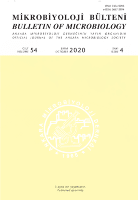
MIKROBIYOLOJI BULTENI
Shaping the Future of Microbial ScienceMIKROBIYOLOJI BULTENI, with ISSN 0374-9096, is a prestigious academic journal published by the ANKARA MICROBIOLOGY SOC, located in Ankara, Turkey. Established in 1973, this journal has been a vital conduit for disseminating research in the fields of Immunology, Microbiology, and Infectious Diseases, garnering a reputation as a significant contributor to the scientific community. The journal is currently ranked in the Q3 category within Immunology and Microbiology (miscellaneous), and Infectious Diseases, indicating its impactful presence amidst contemporary research. With access options that may be restricted, MIKROBIYOLOJI BULTENI actively welcomes submissions that advance the understanding of critical microbiological principles and practices, thereby supporting both national and international research efforts. Researchers, professionals, and students are encouraged to explore the latest findings shared in this journal, as it continually shapes the landscape of microbiology and infectious disease studies through its comprehensive and rigorous peer-reviewed publications.

JOURNAL OF BASIC MICROBIOLOGY
Fostering Excellence in Microbiology StudiesJOURNAL OF BASIC MICROBIOLOGY is a premier publication in the field of microbiology, published by WILEY since 1985. With a significant presence in Germany, this journal encompasses a wide spectrum of research topics, focusing on applied microbiology and biotechnology as well as diverse areas within medicine. Holding a commendable Q2 ranking in both its categories for 2023, it plays a crucial role in disseminating innovative findings and methodologies to the community. Researchers will find it to be an essential platform for sharing high-quality work, where it currently stands at rank #47 in the applied microbiology and biotechnology category, representing the 63rd percentile among international journals. The JOURNAL OF BASIC MICROBIOLOGY caters to a growing audience of professionals and students, offering insights essential for advancement in microbiological research and its applications. While it does not currently offer an Open Access option, it remains an influential outlet for academic excellence, continuously contributing to the development of the field through its rigorous peer-reviewed articles.

CURRENT MICROBIOLOGY
Exploring Innovations in Microbiology and BiotechnologyCURRENT MICROBIOLOGY, published by SPRINGER, is a renowned journal that serves as a critical platform for the dissemination of cutting-edge research in the field of microbiology. With an ISSN of 0343-8651 and an E-ISSN of 1432-0991, this journal contributes significantly to the scientific community by covering a diverse range of topics from applied microbiology and biotechnology to various aspects of medicine. Currently operating an impact factor that places it within the Q2 quartile in both applied microbiology and biotechnology and medicine (miscellaneous), along with a Q3 ranking in microbiology, CURRENT MICROBIOLOGY is recognized for its valuable contributions to these dynamic fields. This journal, which has documented the evolution of microbiological research since its inception in 1978, provides an essential venue for researchers, professionals, and students alike to explore innovative studies and advances. Although it does not offer open access, the journal remains a pivotal resource within its category, complementing the ongoing growth and exploration of microbiology from its headquarters at One New York Plaza, Suite 4600, New York, NY 10004, United States. Its Scopus rankings highlight its reputable standing, making it a key publication for anyone aiming to stay at the forefront of microbiological science.
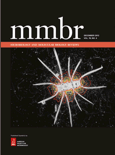
MICROBIOLOGY AND MOLECULAR BIOLOGY REVIEWS
Bridging Microbial Insights with Molecular InnovationsMICROBIOLOGY AND MOLECULAR BIOLOGY REVIEWS, published by the American Society for Microbiology, is a premier journal dedicated to advancing the fields of microbiology and molecular biology. With an impressive impact factor reflective of its Q1 ranking in categories such as Immunology, Infectious Diseases, and Molecular Biology, this journal consistently showcases high-quality, peer-reviewed articles that contribute to the current understanding of microbial life and molecular mechanisms. Operating since 1997, the journal aims to bridge the gap between microbiological methods and molecular biology applications, making it an essential resource for researchers, professionals, and students alike. Readers can access content through various platforms, ensuring that the latest findings are readily available to the scientific community. With its esteemed reputation, MICROBIOLOGY AND MOLECULAR BIOLOGY REVIEWS remains a leading voice in the exploration of the life sciences, catering to a broad audience deeply invested in unraveling the complexities of microbial and molecular systems.
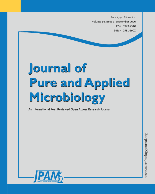
Journal of Pure and Applied Microbiology
Exploring the Depths of Microbiology and BiotechnologyJournal of Pure and Applied Microbiology, published by DR M N KHAN, is an esteemed Open Access journal that has been dedicated to advancing the frontiers of microbiological research since its inception in 2007. Located in Bhopal, Madhya Pradesh, India, this journal presents a platform for researchers and professionals in the fields of Applied Microbiology and Biotechnology, offering insights that span a diverse range of topics critical to both scientific progress and industrial applications. As of 2023, the journal is categorized in the Q3 and Q4 quartiles, demonstrating its relevance and growing impact within the community—ranking #219 in Biochemistry, Genetics and Molecular Biology and #93 in Immunology and Microbiology. With an emphasis on accessibility, the journal has embraced an Open Access format since 2017, allowing for a wider dissemination of knowledge. By publishing high-quality research, the Journal of Pure and Applied Microbiology plays a pivotal role in fostering innovation and collaboration among researchers, students, and industry professionals alike.

JOURNAL OF MICROBIOLOGY
Fostering interdisciplinary dialogue in microbial sciences.JOURNAL OF MICROBIOLOGY, published by the Microbiological Society Korea, is a prestigious peer-reviewed journal dedicated to the advancement of knowledge in the fields of microbiology, applied microbiology, and biotechnology. Established in 1996, this journal serves as a vital platform for researchers and professionals from around the globe to disseminate their findings and engage in multidisciplinary discussions pertaining to microbial sciences. With an H-index that reflects its impact, the journal holds a commendable Q2 ranking in key categories including Applied Microbiology and Biotechnology, as well as Medicine (Miscellaneous), which underscores its significance in the academic community. Despite being a subscription-based journal, the JOURNAL OF MICROBIOLOGY aims to contribute to the understanding of microbial processes and their applications, facilitating advancements that are essential in health, industry, and environmental sciences. Researchers, students, and practitioners are encouraged to explore this rich resource for the latest research and trends in microbiology.